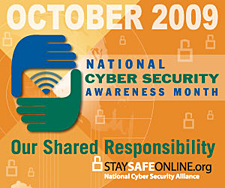- Rozovsky wins prestigious NSF Early Career Award
- UD students meet alumni, experience 'closing bell' at NYSE
- Newark Police seek assistance in identifying suspects in robbery
- Rivlin says bipartisan budget action, stronger budget rules key to reversing debt
- Stink bugs shouldn't pose problem until late summer
- Gao to honor Placido Domingo in Washington performance
- Adopt-A-Highway project keeps Lewes road clean
- WVUD's Radiothon fundraiser runs April 1-10
- W.D. Snodgrass Symposium to honor Pulitzer winner
- New guide helps cancer patients manage symptoms
- UD in the News, March 25, 2011
- For the Record, March 25, 2011
- Public opinion expert discusses world views of U.S. in Global Agenda series
- Congressional delegation, dean laud Center for Community Research and Service program
- Center for Political Communication sets symposium on politics, entertainment
- Students work to raise funds, awareness of domestic violence
- Equestrian team wins regional championship in Western riding
- Markell, Harker stress importance of agriculture to Delaware's economy
- Carol A. Ammon MBA Case Competition winners announced
- Prof presents blood-clotting studies at Gordon Research Conference
- Sexual Assault Awareness Month events, programs announced
- Stay connected with Sea Grant, CEOE e-newsletter
- A message to UD regarding the tragedy in Japan
- More News >>
- March 31-May 14: REP stages Neil Simon's 'The Good Doctor'
- April 2: Newark plans annual 'wine and dine'
- April 5: Expert perspective on U.S. health care
- April 5: Comedian Ace Guillen to visit Scrounge
- April 6, May 4: School of Nursing sponsors research lecture series
- April 6-May 4: Confucius Institute presents Chinese Film Series on Wednesdays
- April 6: IPCC's Pachauri to discuss sustainable development in DENIN Dialogue Series
- April 7: 'WVUDstock' radiothon concert announced
- April 8: English Language Institute presents 'Arts in Translation'
- April 9: Green and Healthy Living Expo planned at The Bob
- April 9: Center for Political Communication to host Onion editor
- April 10: Alumni Easter Egg-stravaganza planned
- April 11: CDS session to focus on visual assistive technologies
- April 12: T.J. Stiles to speak at UDLA annual dinner
- April 15, 16: Annual UD push lawnmower tune-up scheduled
- April 15, 16: Master Players series presents iMusic 4, China Magpie
- April 15, 16: Delaware Symphony, UD chorus to perform Mahler work
- April 18: Former NFL Coach Bill Cowher featured in UD Speaks
- April 21-24: Sesame Street Live brings Elmo and friends to The Bob
- April 30: Save the date for Ag Day 2011 at UD
- April 30: Symposium to consider 'Frontiers at the Chemistry-Biology Interface'
- April 30-May 1: Relay for Life set at Delaware Field House
- May 4: Delaware Membrane Protein Symposium announced
- May 5: Northwestern University's Leon Keer to deliver Kerr lecture
- May 7: Women's volleyball team to host second annual Spring Fling
- Through May 3: SPPA announces speakers for 10th annual lecture series
- Through May 4: Global Agenda sees U.S. through others' eyes; World Bank president to speak
- Through May 4: 'Research on Race, Ethnicity, Culture' topic of series
- Through May 9: Black American Studies announces lecture series
- Through May 11: 'Challenges in Jewish Culture' lecture series announced
- Through May 11: Area Studies research featured in speaker series
- Through June 5: 'Andy Warhol: Behind the Camera' on view in Old College Gallery
- Through July 15: 'Bodyscapes' on view at Mechanical Hall Gallery
- More What's Happening >>
- UD calendar >>
- Middle States evaluation team on campus April 5
- Phipps named HR Liaison of the Quarter
- Senior wins iPad for participating in assessment study
- April 19: Procurement Services schedules information sessions
- UD Bookstore announces spring break hours
- HealthyU Wellness Program encourages employees to 'Step into Spring'
- April 8-29: Faculty roundtable series considers student engagement
- GRE is changing; learn more at April 15 info session
- April 30: UD Evening with Blue Rocks set for employees
- Morris Library to be open 24/7 during final exams
- More Campus FYI >>
12:31 p.m., Oct. 6, 2009----During October, National Cyber Security Awareness Month, University of Delaware Information Technologies (IT) is reminding the University community of the importance of following good computer security practices.
“One of the most important things for everyone at UD to remember is that we all have confidential information we need to protect,” Scott Sweren, the University's Information Security Officer, said. “Individuals need to be concerned not only about their personal, non-public information (PNPI), but also about other people's PNPI they hold. Specifically, as employees of the University, faculty and staff have a responsibility to protect PNPI in accordance with University policy.”
Protect your own PNPI
“By now, nearly everyone on campus knows the basics of keeping their computer software up-to-date,” Ron Nichols, manager, IT-Client Support and Services, said. “Doing so is essential to protecting the information on the computers as well.”
According to the IT Help Center's Web site, everyone at UD should make sure to keep up to date the following on their computers:
- Operating system;
- Anti-virus software;
- Web browser;
- Firewall software;
- Anti-spyware software (Windows XP systems); and
- Application programs (e.g., Microsoft Office, Adobe Creative Suite, etc.)
“Many of the updates patch security vulnerabilities on individual computers,” Nichols said.
“Using strong passwords is another component in protecting the information you store on a computer,” said Kathy Beardsley, manager, IT Help Center. “In addition to having a good password for UDelNet and e-mail, you need to have a strong password on your desktop or laptop.”
Beardsley added that many faculty, students and staff fall for “phishing scams” every week. “Unscrupulous people bombard the campus with e-mail designed to harvest your UDelNet ID, password, Social Security Number (SSN), bank information, credit card information and birth date. When you receive this kind of e-mail, never reply to it. Delete it,” she said.
Protect others' PNPI -- and follow the law
Much of the information faculty and staff have on their systems is covered by the Family Education Rights and Privacy Act (FERPA), a law that requires the University to protect student information and certain family information in order to receive certain federal funding.
According to Sweren, UD has extended the definition of PNPI to include other information covered by federal regulations. “Basically, any information about someone's health, finances, academic record, and personal life that can identify an individual needs to be protected,” he said.
UD has prescribed methods of protecting PNPI. (Visit the PNPI Web page for more information.) The basic steps to ensure PNPI is appropriately protected include the following:
1. Encrypt transmissions of electronic information containing PNPI, including e-mail.
2. Whenever possible, store PNPI on servers configured to protect sensitive information, not on your own computer.
3. If you must store PNPI on a personal computer, encrypt the information.
4. Purge or delete PNPI when no longer needed.
5. Have departmental systems reviewed regularly. Contact the IT Help Center at 831-6000 to schedule a review.
“UD has a good record of protecting private information,” Sweren said. “However, since 2005, we've had 17 incidents that required notification of individuals whose personal information was accidentally revealed. Even though, to the best of our knowledge, none of these incidents has led to fraud, investigating each incident diverted University resources away from other tasks.”
For more information, see the following:
UD's National Cyber Security Awareness Month Web site




